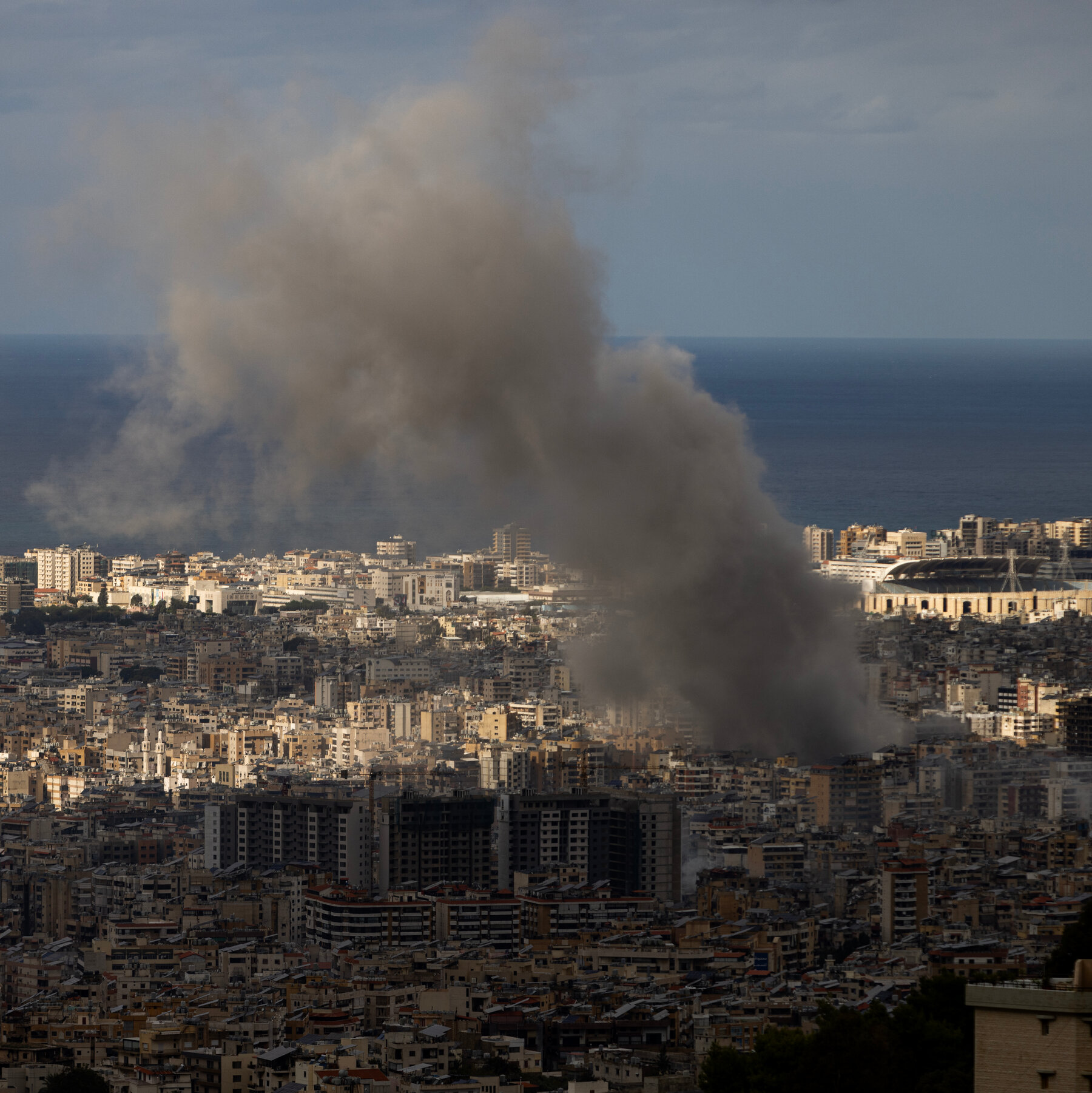Israel and Hezbollah Mount New Attacks Amid Cease-Fire Talks

Rockets flew on both sides of the Israel-Lebanon border even as diplomats tried to finalize a truce.

Israel and Hezbollah continued their heavy exchange of fire on Monday, causing many schools to close on both sides of the Israel-Lebanon border, even as officials signaled that the two sides appeared to be nearing the first cease-fire since their conflict began last year.
The Israeli military said it had struck several command centers belonging to Hezbollah, the Lebanese militia, south of Beirut on Monday morning. At the same time, in parts of northern Israel, residents scrambled to shelters as a new round of sirens announced at least 20 incoming projectiles from Lebanon. Israeli officials said at least some were intercepted by Israeli missiles.
The latest strikes came a day after some of the heaviest aerial attacks in months in both countries.
Israeli officials said Hezbollah had fired at least 250 projectiles, a term it often uses for rockets, into Israel on Sunday, including many toward Tel Aviv, with some causing injuries. In Lebanon, Israeli forces issued a series of sweeping evacuation orders for the area south of Beirut on Sunday night before striking what they said were a dozen Hezbollah command centers. There were no immediate reports of casualties in those strikes.
Analysts have said the intense attacks suggest that both Israel and Hezbollah are trying to maximize their leverage as diplomats conduct what they hope is a final round of cease-fire talks. Amos Hochstein, a top American envoy, traveled to Lebanon and Israel last week to move talks ahead. Over the weekend, Defense Secretary Lloyd J. Austin III spoke with his Israeli counterpart, Israel Katz, to push for a resolution that allows Israeli and Lebanese residents near the border to return to homes they fled because of the strikes.
Both Israeli and Hezbollah officials have suggested that a deal to pause the fighting may be as close as it has been since Hezbollah began firing rockets at Israel 13 months ago in solidarity with Hamas in Gaza.
The two sides have said little publicly about the details of the proposed agreement. The New York Times reported on Friday that the terms included a 60-day truce during which Israeli forces and Hezbollah fighters pull back from border areas and the Lebanese Army and a United Nations peacekeeping force increase their presence in a buffer zone.
But officials have also warned that the two sides may not be able to finalize a deal, and Prime Minister Benjamin Netanyahu of Israel has faced pressure from right-wing allies not to end the military campaign. Israel’s hard-line national security minister, Itamar Ben-Gvir, said in a social media post on Monday that the proposed deal would be a “historic missed opportunity to eradicate Hezbollah.”
“As I warned before in Gaza, I warn now as well: Mr. Prime Minister, it is not too late to stop this agreement!” he added. “We must continue until the absolute victory!”
Jack Nicas is a foreign correspondent for The Times, covering the conflict in the Middle East from Jerusalem. More about Jack Nicas






